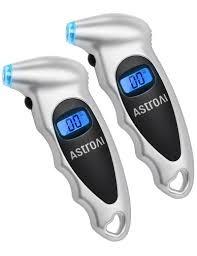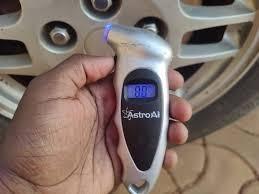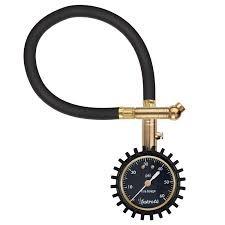Electrical testers are essential tools for anyone working with electricity, from professional electricians to DIY enthusiasts. These devices help ensure that electrical systems are working correctly and safely. One of the key subtypes of electrical testers is the continuity tester, which checks whether a circuit is complete, allowing current to flow. This article will explore the types, uses, and importance of electrical testers, with a special focus on continuity testers.
For high-quality electrical testing tools, visit AstroAI, your trusted source for reliable devices.
What Is an Electrical Tester?
An electrical tester is a device used to determine the presence of electricity in a circuit or system. These testers come in various forms and are used for different purposes, such as checking voltage, current, or continuity in wiring and devices. Their primary goal is to ensure electrical safety and troubleshoot electrical issues.
Electrical testers can vary significantly in complexity, ranging from simple tools like voltage detectors to more advanced digital multimeters. Regardless of the type, they are indispensable for anyone dealing with electrical systems.
Types of Electrical Testers
Electrical testers can be broadly categorized into the following types:
1. Voltage Testers
Voltage testers detect the presence of electrical voltage in a circuit. They are useful for identifying live wires and ensuring no voltage is present before starting work on an electrical system. These testers can be contact or non-contact, with non-contact versions being safer to use around live circuits.
2. Circuit Testers
Circuit testers are designed to assess whether a circuit is complete or if there is any fault within the system. They often include features for testing ground, neutral, and hot wires, helping diagnose problems quickly.
3. Continuity Testers
A continuity tester is a simple device that checks whether a circuit is complete. It helps determine if electricity can flow through the wiring. Continuity testers are essential for ensuring that wiring connections are solid and that no breaks or faults exist in the system.

4. Multimeters
A digital multimeter is a versatile tool that can measure voltage, current, and resistance. It can also test for continuity, making it an all-in-one tool for electrical testing.
What Is a Continuity Tester?
A continuity tester is a specialized tool used to determine whether a circuit is complete by sending a small electrical current through the wires. If the circuit is continuous (meaning it has no breaks), the tester will either light up or emit a sound. If there is a break in the circuit, the tester will remain inactive.
How Does a Continuity Tester Work?
The continuity tester has two leads: one for each end of the circuit. When you touch both leads to the circuit components, it sends a small current to test for continuity. If the circuit is uninterrupted, the tester will alert you, confirming that the wiring is intact.
Continuity testers are widely used to:
- Verify the integrity of fuses.
- Check the wiring in appliances.
- Test light bulbs.
- Troubleshoot electrical systems in vehicles and other machinery.
Why Use a Continuity Tester?
Continuity testers are vital for both professionals and hobbyists because they allow you to:
- Identify faulty wires or connections.
- Prevent electrical hazards by detecting broken circuits.
- Ensure that devices and appliances are correctly wired and operational.

For those looking for reliable continuity testers, AstroAI offers a range of high-quality tools designed to make your testing process easy and efficient.
Safety Tips When Using Electrical Testers
When using any electrical testing tool, safety is paramount. Here are some essential tips:
- Always Turn Off Power: Before using a tester, make sure the circuit is de-energized to avoid electric shock.
- Wear Protective Gear: Insulated gloves and goggles can protect you from potential electrical hazards.
- Use the Right Tool for the Job: Ensure you’re using the appropriate tester (voltage, continuity, multimeter) for the task at hand.
- Test on a Known Source: Before testing a circuit, verify that your electrical tester is working correctly by using it on a known live source.
Electrical testers, particularly continuity testers, play a critical role in ensuring that electrical circuits and systems are functioning correctly and safely. Whether you’re an electrician, or technician, or simply doing home repairs, having the right electrical tester on hand is essential for effective troubleshooting.
For high-quality, reliable electrical testing tools, including continuity testers, check out AstroAI for a wide selection of products tailored to meet your needs.
